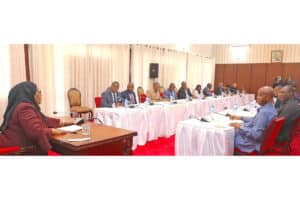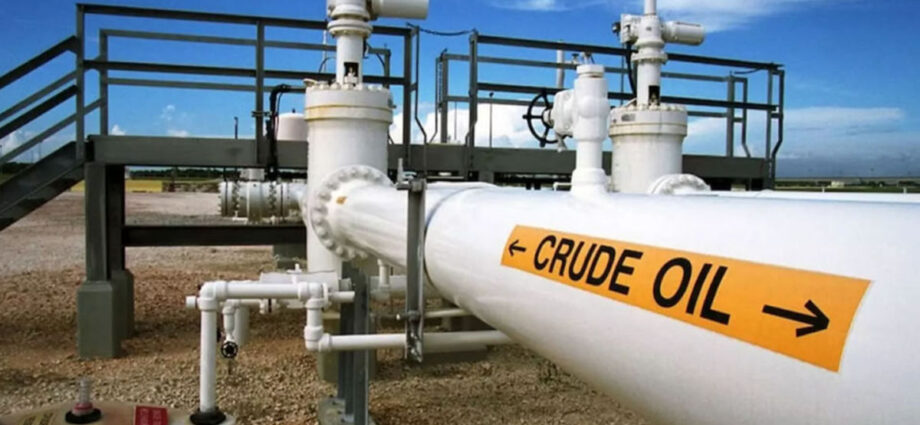
A resolution passed by the European Parliament last month condemning the planned East African Crude Oil Pipeline (EACOP) has sparked outrage in Africa for what many consider to be double standards.
The resolution passed on September 14, 2022 calls for a one-year moratorium on the project to give time to “study the feasibility of an alternative route”.
Responding to the resolution, Tanzania’s Energy minister, January Makamba, stated that while “the entire pipeline route within Tanzania has been designed to minimise the kind of environmental and social impacts that the EU Parliament expressed concerns about, some physical relocation and whole or partial loss of farmland was unavoidable”.
The EACOP, which spans 1,443 kilometres from Hoima in Uganda, via Kagera, Singida, and Tanga, has long been a subject of controversy. This follows the discovery of oil in and around Lake Albert in 2006. TotalEnergies owns the majority of EACOP, with Uganda and Tanzania owning 15 percent and 5 percent, respectively.
In August 2015, Uganda and Kenya agreed to build a Uganda-Kenya Crude Oil Pipeline (UKCOP) from Hoima to Lokichar, at the heart of Kenya’s oil fields, to the port of Lamu. UKCOP was a key component of Kenya’s grand scheme to revitalise its underdeveloped northern regions through an integrated Lamu Port-South Sudan-Ethiopia Transport (LAPSSET) project.
Kenya hoped to link oil fields in South Sudan, Uganda, and Kenya, thus positioning itself as the regional oil hub despite its limited oil holdings.
In Uganda, concerns abounded regarding their overdependence on Kenya. However, with Tanzania dragging its feet on East African integration, Uganda felt it had no other choice.
Three factors changed that. Firstly, TotalEnergies was opposed to the northern route, citing cost, security concerns, and technological difficulties.
The multinational, instead, pushed for a southern route via Tanzania. Then, John Magufuli came into power in Tanzania, and offered Uganda better conditions. Museveni’s decision must have had a bearing on Magufuli’s reputation for completing infrastructure projects quickly.
Finally, the coalition of the willing came to an end due to diplomatic tensions between Uganda and Rwanda.
Therefore, UKCOP was laid to rest, underscoring the fact that, despite shared EAC objectives, each nation would pursue them in its way.
EACOP, on the other hand, has a soft underbelly – it traverses through endangered wildlife habitats, and forest reserves, skirts Lake Victoria, and crosses hundreds of rivers and thousands of farms.
This sparked a well-coordinated campaign against it, targeting TotalEnergies, Uganda, and potential financiers. As a result, when the EU alludes to a “feasible alternative route”, it suggests that the EU wishes to revive the prospects of the northern route.
This is not just interference in African states’ domestic issues, but it also plays into the hands of intricate regional politics.
The EU, though, is not an unwitting player in this game. In the words of the deputy speaker of Uganda, the EU’s resolution is “self-serving”. One of the motivations behind the EU is its climate commitments, particularly the Paris Agreement.
In 2015, virtually every government signed the Paris Agreement to combat climate change. The objective was to keep greenhouse gas (GHG) emissions to no more than 2 degrees Celsius above preindustrial levels.
But the EU is one of the world’s biggest polluters. Despite accounting for only 10 percent of the global population, the EU accounts for 13 percent of GHG emissions, trailing only China and the United States. Lately, its emissions have increased at a rate of 6 percent per year.
In contrast, Africa, which accounts for 17 percent of the world’s population, generates less than 4 percent of global GHG emissions.
This means it will take an average Ugandan 80 years to emit what a German does in one year. Thus, it will take many decades for Africa to reach Europeans’ per capita GHG emissions.
Despite that, the EU has stepped up its efforts to keep African countries away from much-needed fossil fuel resources.
Funding for coal power plants has been cut off. Projects like EACOP are being discouraged, and weird investments in wind and solar projects are being advocated.
This is quite hypocritical. All around Europe, coal power plants are being restarted. It is what one analyst calls “fossil fuel for me but not for thee” policy.
The EU’s “feasible alternative” idea is simply a ruse to keep East Africans fighting among themselves while the project is delayed indefinitely. Europe sincerely hopes that EACOP fails so that it may soothe its conscience while Africans pay the price for global energy transition.
The politics behind EACOP are complex, but the interests are quite straightforward. For the people of Uganda and Tanzania, while the environmental concerns are genuine, that is not their utmost concern.
While Europeans may wax lyrical about elephants, lions, and chimps, Africans are more worried about improved public services and more opportunities that the pipeline would hopefully help to bring.
Indeed, if the EU wishes to engage African governments on matters of human rights, they should choose occasions that do not deprive Africans of billions of dollars in the process.
Quite often, Europe forgets that Africans also desire development. The EU parliament’s decision misses the point completely.
All it does is perpetuate a culture of mistrust between Africa and Europe. Given Europe’s imperialist history in Africa, that is quite unfortunate. The pushback is a great reminder that it is time Europeans changed their attitude towards Africa.
Africa does not need Europe’s consent to develop. As Museveni stated, if the Europeans force TotalEnergies out, Uganda and Tanzania should simply find another funder and go ahead. One can hear many Africans saying “amen” to that.
Original Media Source Share this news
Facebook
Twitter
LinkedIn
WhatsApp
This Year's Most Read News Stories

Top News
Tanzania’s path to 4Rs: The President Samia’s era
Tanzania has embarked on a journey of resilience, rebuilding, reconciliation, and reform under the leadership of President Samia Suluhu Hassan.Continue Reading
July 31, 2024

Popular
Insecurity prompts Zanzibar to review its lucrative island leasing
The Tanzanian central government is planning to boost its security presence in the Zanzibar archipelago. A commission tasked with auditing the country’s security forces was appointed in July by President Samia Suluhu Hassan. It says it is concerned about the situation in the country’s Indian Ocean islands that are under the control of the semi-autonomous Zanzibar local government.Continue Reading
October 7, 2022

Top News
US taps Tanzania for infrastructure plan in battle with China for minerals
Washington wants to tap into the country’s minerals, particularly its nickel mines.Continue Reading
August 30, 2024











